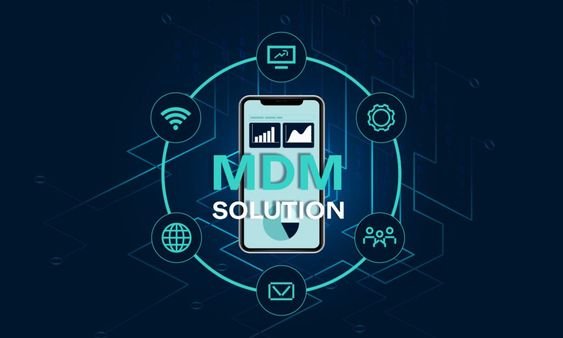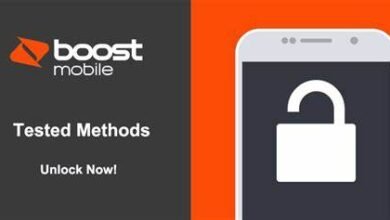Top 10 Mobile Device Management Solutions

In today’s digital era, operating mobile devices in an association is paramount for preserving security, securing productivity, and facilitating techniques. With the expanding number of mobile devices utilized in the workplace, the essential for well-organized Mobile Device Management (MDM) resolve solutions has never been more significant. We’ll analyze the top 10 MDM solutions available in the market, evaluating their features, pricing, and known arrangement.
Top 10 Mobile Device Management Solutions
This identification Indicates a complete review of the top 10 Mobile Device Management solutions, concentrating on security, features, and scalability for practical device administration.

- Microsoft Intune
- VMware AirWatch
- IBM MaaS360
- Cisco Meraki
- Jamf Pro
- MobileIron
- SOTI MobiControl
- Sophos Mobile
- BlackBerry UEM
- 42Gears SureMDM
Microsoft Intune
Microsoft Intune is a complete cloud-based MDM solution that suggests extensive features for operating mobile devices, apps, and PCs. It delivers strong security policies, application management, and device registration capabilities. With Intune, organizations can ensure observance of corporate policies and protect acute data across various devices and platforms.

Features:
- Remote device management
- App management and distribution
- Conditional access policies
- Integration with Microsoft 365
Pricing: Microsoft Intune offers flexible pricing plans established on the number of users and features required by the organization.
Pros:
- Seamless integration with Microsoft ecosystem
- Intuitive user interface
- Strong security features
Cons:
- Some advanced features may require additional licensing.
VMware AirWatch
VMware AirWatch is the most incredible MDM solution for its scalability and robust security features. It offers device management, app management, and range management capabilities, making it suitable for businesses of all sizes. AirWatch sustains multiple operating systems, including iOS, Android, Windows, and macOS, providing flexibility and compatibility.

Features:
- Unified endpoint management
- App catalog and distribution
- Advanced security policies
- Integration with VMware Workspace ONE
Pricing: VMware AirWatch offers subscription-based pricing plans tailored to the organization’s requirements.
Pros:
- Scalable solution for large enterprises
- Comprehensive security features
- Extensive management capabilities
Cons:
- The steeper learning curve for beginners
IBM MaaS360
IBM MaaS360 is a cloud-based MDM platform extended to encourage the administration of mobile devices and approaches. It suggests a user-friendly interface and customizable procedures to fulfill the particular requirements of additional associations. MaaS360 provides robust security elements, containing threat detection, encryption, and adherence control, to defend corporate data and devices.

Features:
- Device enrollment and configuration
- App security and distribution
- Endpoint compliance monitoring
- Integration with IBM Security Trusteer
Pricing: IBM MaaS360 suggests adjustable pricing plans based on the number of devices and preferred qualities.
Pros:
- Easy-to-use interface
- Comprehensive security capabilities
- Integration with IBM’s ecosystem
Cons:
- Some advanced features may require additional setup
Cisco Meraki
Cisco Meraki is a cloud-based MDM solution learned for its clarity and scalability. It delivers centralized leadership of mobile devices, web infrastructure, and security devices via a reflexive web-based dashboard. Meraki provides:
- Cutting-edge security features.
- Real-time monitoring.
- Automated device provisioning to streamline IT operations and enhance security posture.

Features:
- Centralized device management
- Network security and monitoring
- Automated device provisioning
- Integration with Cisco’s networking effects
Pricing: Cisco Meraki offers subscription-based pricing plans based on the number of devices and desired features.
Pros:
- Simple setup and deployment
- Real-time visibility and control
- Seamless integration with Cisco’s ecosystem
Cons:
- Higher cost compared to some competitors
Jamf Pro
Jamf Pro is a leading MDM solution conceived explicitly for managing Apple devices in corporation environments. It delivers complete device management, app deployment, and security elements customized to macOS, iOS, and tvOS devices. Jamf Pro encourages associations to automate device setup, execute security policies, and deploy apps seamlessly across Apple devices.

Features:
- Apple device management
- Automated device provisioning
- App deployment and management
- Integration with Apple Business Manager
Pricing: Jamf Pro offers subscription-based pricing strategies based on the number of Apple devices controlled by the association.
Pros:
- Specialized for Apple ecosystem
- Seamless integration with Apple’s deployment programs
- Robust security and management features
Cons:
- Limited support for non-Apple devices
MobileIron
MobileIron is a complete MDM (Mobile Device Management) solution that delivers end-to-end protection and authority of mobile appliances, apps, and scope. It suggests a suitable endpoint management outlet with cutting-edge security features, including zero-trust security procedures, threat detection, and adherence enforcement. MobileIron supports multi-OS environments, making it appropriate for organizations with various device caravans.

Features:
- Unified endpoint management
- Zero-trust security framework
- App and content management
- Integration with third-party security tools
Pricing: MobileIron offers subscription-based pricing plans tailored to the organization’s needs and deployment size.
Pros:
- Strong focus on security
- Scalable solution for enterprise environments
- Extensive management capabilities
Cons:
- Complexity may require additional training
SOTI MobiControl
SOTI MobiControl is a feature-rich MDM (Mobile Device Management) resolve solution developed to operate mobile appliances, applications, and content across additional platforms. It offers complete device management, security features, and remote authorization qualifications to optimize device arrangement and defend corporate data. MobiControl keeps both corporate-owned and BYOD (Bring Your Device) scenarios, providing flexibility for additional organizational requirements.
![]()
Features:
- Device enrollment and provisioning
- App and content management
- Remote troubleshooting and support
- Integration with enterprise systems
Pricing: SOTI MobiControl suggests flexible pricing strategies based on the number of devices and expected features.
Pros:
- Comprehensive feature set
- Flexible deployment options
- Strong security and management capabilities
Cons:
- The user interface could be improved
Sophos Mobile
Sophos Mobile is a complete MDM solution that delivers robust security features and control abilities for mobile devices and applications. It provides endpoint protection, app control, and content purification to secure corporate data and devices from additional threats. Sophos Mobile maintains multi-OS environments and merges ideally with Sophos’ security ecosystem for improved protection.

Features:
- Endpoint protection and security
- App and content management
- Compliance enforcement
- Integration with Sophos’ security products
Pricing: Sophos Mobile offers subscription-based pricing plans tailored to the organization’s requirements.
Pros:
- Strong focus on security
- Seamless integration with Sophos’ ecosystem
- User-friendly interface
Cons:
- Limited advanced features compared to some competitors
BlackBerry UEM
BlackBerry UEM (Unified Endpoint Manager) is a complete MDM solution developed to manage and connect endpoints across additional outlets. It suggests cutting-edge security elements, containing endpoint protection, encryption, and threat detection, to defend marketable data and devices. BlackBerry UEM delivers a collaborative management outlet for mobile devices, apps, and content, allowing associations to simplify operations and improve security posture.

Features:
- Unified endpoint management
- Advanced security policies
- App and content management
- Integration with BlackBerry’s security resolutions
Pricing: BlackBerry UEM offers adjustable pricing plans based on the number of devices and expected features.
Pros:
- Strong security capabilities
- Integration with BlackBerry’s security ecosystem
- Comprehensive management features
Cons:
- Higher cost compared to some competitors
42Gears SureMDM
42Gears SureMDM is a complete MDM solution developed to control mobile devices, apps and ranges across additional platforms. It suggests a wide range of features, including device signup, app allocation, and remote troubleshooting, to simplify device management and improve productivity. SureMDM supports different device types and operating systems, making it appropriate for organizations with various device fleets.

Features:
- Device enrollment and configuration
- App and content management
- Remote support and troubleshooting
- Integration with enterprise systems
Pricing: 42Gears SureMDM offers subscription-based pricing strategies based on the number of devices and selected features.
Pros:
- User-friendly interface
- Comprehensive feature set
- Flexible deployment options
Cons:
- Limited advanced reporting capabilities
Comparison of Top MDM Solutions
In this thorough comparison, we conduct an in-depth analysis of the top Mobile Device Management (MDM) solutions obtainable in today’s market. Our evaluation contains a detailed examination of each platform’s features, security measures, scalability options, and pricing systems. By researching these critical factors, businesses can gain practical insight into the strengths and disadvantages of each MDM solution, encouraging informed decision-making.

The comparison aims to provide businesses with an explicit knowledge of the capabilities and suitability of these guiding MDM platforms. We explore how individual solutions address expected challenges faced by organizations in addressing their mobile device fleets, such as security threats, device compatibility, and user accessibility. Via this analysis, businesses can recognize the MDM solution that best aligns with their unique requirements, whether it be vital security elements, ideal unification with living systems, or scalability for future development.
Additionally, we consider the user experience and mitigation of individual MDM solutions’ performance, acknowledging the importance of intuitive interfaces and efficient deployment strategies in maximizing productivity and minimizing functional disruptions. By considering these elements thoroughly, businesses can ensure a smooth evolution of their selected MDM solution, optimizing the management of their mobile devices while minimizing associated threats and expenses.

Overall, this comparison is a valuable resource for businesses aspiring to improve their mobile device management strategies. By providing decision-makers with the knowledge and acuities needed to assess and compare the top MDM (Mobile Device Management) solutions, we certify organizations to make informed selections that drive efficiency, security, and success in an increasingly mobile-centric world.
Conclusion
Selecting a suitable Mobile Device Management (MDM) solution is essential for associations to guarantee the security and productivity of their mobile workforce. With a wide range of options attainable in the market, elements such as security components, user interface, and compatibility with additional devices and operating systems must be evaluated. By considering the top 10 MDM solutions concerned and approximating their features and pricing, organizations can make an informed decision that satisfies their specific requirements and budget constraints.
FAQs
Why is MDM important for businesses?
MDM is critical for businesses to preserve security, execute policies, and simplify device management processes in today's mobile-centric workplace. It supports associations to protect sensitive data, ensure adherence to laws, and improve productivity by effectively managing and securing mobile devices.
What are some key features to examine in an MDM solution?
When considering MDM solutions, key features include isolated device management, app allocation, security policies, compatibility with additional devices and handling systems, and integration with other IT systems and devices.
How do I select the right MDM solution for my organization?
Selecting the right MDM solution depends on various elements, such as your organization's extent and complexity, security requirements, allocation limitations, and the types of devices and platforms you demand to support. It's essential to consider your organization's requirements carefully and evaluate different MDM solutions based on their features, pricing, and overall suitability.
Can I integrate MDM with other IT systems and tools?
Many MDM solutions offer integration capabilities with other IT systems and tools, such as individuality administration, security information and event management (SIEM), and enterprise mobility management (EMM) platforms. Integrating MDM with other systems can enhance security, simplify workflows, and improve overall efficiency in managing mobile devices and applications.








